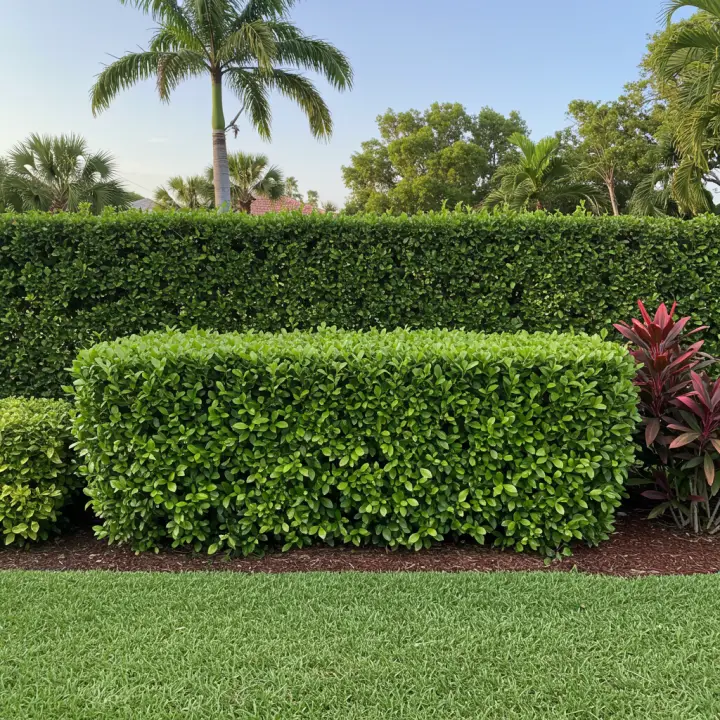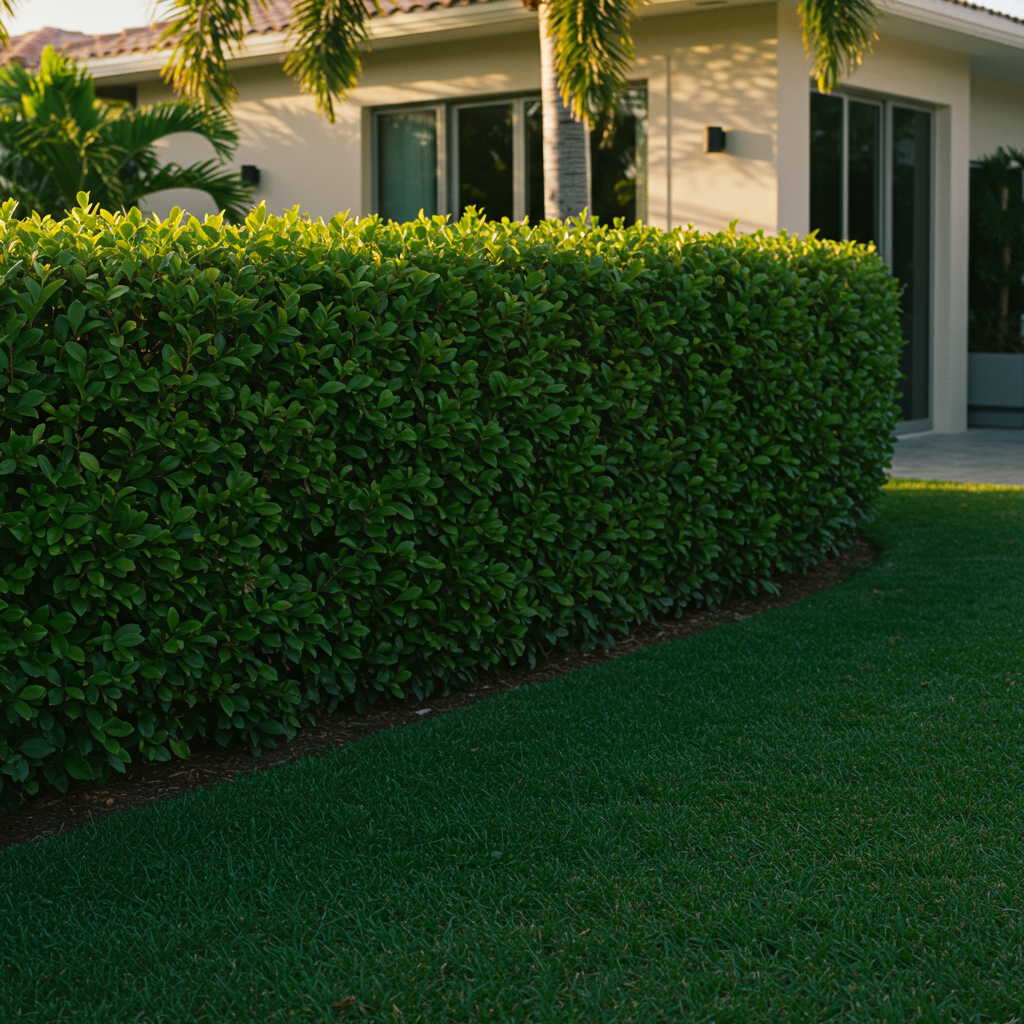Are you searching for the perfect green barrier to enhance your West Palm Beach property? Look no further! This guide reveals the best hedge for West Palm Beach, covering robust, beautiful, and low-maintenance options that thrive in our unique sub-tropical climate. Achieve ultimate privacy, boost curb appeal, and create a lush oasis with the right hedge.
West Palm Beach, with its vibrant lifestyle and beautiful landscapes, offers a fantastic opportunity to create your own slice of paradise. A well-chosen hedge is more than just a row of plants; it’s a living fence that provides privacy, defines property lines, dampens noise, and adds significant aesthetic value to your home. But with so many options, how do you pick the perfect one for our specific climate and soil conditions? This guide will walk you through the top choices and essential considerations, ensuring your hedge thrives for years to come.

Why a Hedgerow is Essential in West Palm Beach
Hedges offer a multitude of benefits beyond their visual appeal, making them a must-have for any West Palm Beach homeowner.
Enhanced Privacy and Security
One of the primary reasons homeowners choose hedges is for privacy. A dense, tall hedge can effectively block views from neighbors or street traffic, turning your yard into a secluded retreat. It also offers a layer of security, discouraging unwanted visitors.
Boosted Curb Appeal
A well-maintained hedge adds elegance and structure to your landscape. It can frame your property, highlight architectural features, or create a lush backdrop for flowering plants, significantly increasing your home’s curb appeal and value.
Natural Windbreak and Sound Barrier
Our coastal location sometimes brings strong breezes. A thick hedge acts as a natural windbreak, protecting your garden and outdoor living spaces. Its dense foliage also helps absorb sound, creating a quieter, more peaceful environment.
Wildlife Habitat
Many hedge plants provide shelter and food for local wildlife, including birds and butterflies. Choosing native or Florida-friendly options can further enhance these ecological benefits.
Key Factors When Choosing Your West Palm Beach Hedge
Selecting the right hedge requires considering several environmental and practical factors specific to our region.
Sun Exposure and Soil Type
West Palm Beach receives abundant sunshine. Most hedges prefer full sun (6+ hours daily), but some tolerate partial shade. Our soils can vary, from sandy to loamy. Understanding your garden’s specific conditions will narrow down your choices.
Water Needs and Salt Tolerance
After establishment, many hedges in West Palm Beach thrive with minimal supplemental irrigation. However, new plantings require consistent watering. If you live closer to the coast, salt tolerance is a critical factor for plants exposed to sea spray or brackish water.
Maintenance Requirements
Consider how much time you’re willing to dedicate to pruning, watering, and general care. Some hedges are naturally tidy, while others require frequent trimming to maintain their shape and density.
Growth Rate and Desired Height
Do you need a fast-growing screen or are you patient for a slow-growing, highly structured hedge? Also, consider the mature height and width of the plant to ensure it fits your space without becoming overgrown.
Pest and Disease Resistance
Choosing plants known for their resistance to common local pests and diseases will save you headaches and reduce the need for chemical treatments.
The Best Hedge Options for West Palm Beach (Top Picks!)
Here are some of the most reliable and beautiful hedge species that thrive in West Palm Beach.
Clusia (Clusia guttifera ‘Small Leaf’)
Why it’s great: Extremely durable, salt-tolerant, drought-tolerant once established, and grows into a dense, attractive screen with leathery, paddle-like leaves. It’s often used for formal, tidy hedges.
Maintenance: Low to moderate; occasional pruning to maintain shape.
Podocarpus (Podocarpus macrophyllus)
Why it’s great: A classic choice for a formal, evergreen hedge. It has fine-textured, deep green foliage and can be heavily pruned into various shapes. It’s relatively cold-hardy for Florida and very adaptable.
Maintenance: Moderate; benefits from regular shaping to maintain density.
Viburnum (Viburnum odoratissimum)
Why it’s great: A fast-growing, dense evergreen with lustrous green leaves and fragrant white flowers in spring. It creates an excellent privacy screen quickly and is quite adaptable to different soil conditions.
Maintenance: Moderate to high; can grow aggressively and requires regular trimming to keep it in bounds.
Cocoplum (Chrysobalanus icaco)
Why it’s great: Native to Florida, this makes an excellent salt-tolerant hedge, especially for coastal areas. It has oval to rounded leaves, sometimes with a red tinge, and produces small edible fruits. It can be kept formal or informal.
Maintenance: Low; relatively slow-growing, preferring less pruning.
Green Island Ficus (Ficus microcarpa ‘Green Island’)
Why it’s great: Known for its shiny, dense, round leaves and ability to form an incredibly tight, formal hedge. It grows quickly and establishes well.
* Maintenance: High; requires regular and consistent pruning to maintain its desired shape and size. Important Note: Be mindful of its potentially aggressive root system near foundations or pipes.
Planting and Caring for Your West Palm Beach Hedge
Even the best plant won’t thrive without proper care.
Proper Planting Techniques
Dig holes twice as wide as the root ball and just as deep. Space plants appropriately (usually 2-3 feet apart for a dense hedge, depending on the species’ mature width). Amend poor soil with compost if necessary.
Watering Schedule
Water deeply and regularly after planting to help establish the root system. Once established (typically after 6-12 months), most hedges in West Palm Beach are drought-tolerant but benefit from supplemental watering during dry spells.
Fertilization Tips
Fertilize new plantings with a slow-release granular fertilizer formulated for trees and shrubs. Established hedges generally benefit from a balanced granular fertilizer (e.g., 8-2-10) applied in spring and late summer. Always follow product instructions.
Pruning for Shape and Health
Regular pruning is key to maintaining a dense, attractive hedge. For formal hedges, prune lightly but frequently to encourage branching. For informal hedges, prune less often to allow for a more natural shape and flowering. Remove dead or diseased branches promptly.
Pest and Disease Management
Inspect your hedge regularly for signs of pests or diseases. Healthy plants are generally more resistant. Address problems early with appropriate organic or chemical treatments, consulting a local nursery or extension office if unsure.
Frequently Asked Questions About Hedges in West Palm Beach
Q1: How far apart should I plant hedge plants?
A1: This depends on the species and how quickly you want a dense screen. Generally, space plants 1.5 to 3 feet apart. Ask your local nursery for specific recommendations for your chosen plant.
Q2: How long does it take for a hedge to grow thick?
A2: Growth rate varies by species. Fast-growing options like Viburnum or Ficus can form a decent screen within 2-3 years, while slower growers like Cocoplum or Podocarpus might take 3-5 years or more. Consistent pruning encourages density.
Q3: Do I need to fertilize my hedge regularly?
A3: Yes, especially during establishment and for optimal growth. A slow-release fertilizer twice a year (spring and late summer) is usually sufficient for established hedges.
Q4: What’s the most drought-tolerant hedge for West Palm Beach?
A4: Clusia (Clusia guttifera) and Cocoplum (Chrysobalanus icaco) are excellent choices for drought tolerance once established, making them ideal for areas where water conservation is a concern.
Q5: Are there any native hedge options for West Palm Beach?
A5: Absolutely! Cocoplum (Chrysobalanus icaco) is a fantastic native option. Sea Grape (Coccoloba uvifera) also makes an excellent large, informal, salt-tolerant hedge, especially good for coastal properties.
Conclusion
Choosing the best hedge for West Palm Beach means balancing aesthetics with practicality, keeping our unique climate in mind. By considering factors like sun exposure, soil, maintenance, and growth rate, you can select a species that will thrive and transform your outdoor space. Whether you opt for the robust Clusia, the classic Podocarpus, or a native gem like the Cocoplum, a well-chosen and cared-for hedge will provide years of privacy, beauty, and enjoyment for your West Palm Beach home. Happy planting!

